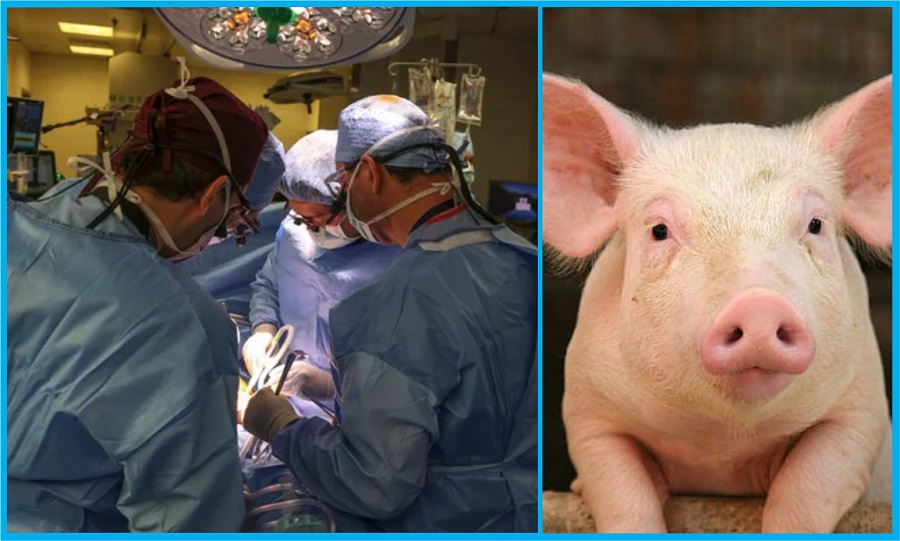News
Doctors Perform World’s First Pig Kidney Transplant Into Man
Doctors (surgeons) in the US carried out the first genetically-edited pig kidney transplant into a human being.

Doctors (surgeons) in the US carried out the first genetically-edited pig kidney transplant into a human being.
A 62-year-old patient identified as Rick Slayman will be discharged soon after surgeons carried out the world’s first successful transparent of a pig’s kidney into him.
According to reports gathered by VerseNews, Slayman had been living with end-stage kidney diseases.
The pig kidney transplant took place on March 16 and was said to have lasted for four hours.
This development was confirmed by Tatsuo Kawai, Chair of Transplant Surgery at Massachusetts General Hospital and the surgeon who performed the transplant.
“The success of this transplant is the culmination of efforts by thousands of scientists and physicians over several decades. We are privileged to have played a significant role in this milestone,” Kawai said.
“Our hope is that this transplant approach will offer a lifeline to millions of patients worldwide who are suffering from kidney failure”.
Slayman previously received a kidney transplant from a human donor in 2018 after being on dialysis for seven years.
Dialysis helps to clear waste from patients’ bloodstream, a function typically carried about by the kidneys.
But five years after his human kidney transplant, it showed signs of failure and he had to resume dialysis but had complications that required frequent trips to the hospital.
Slayman said in a statement that he saw the pig kidney transplant “not only as a way to help me, but a way to provide hope for the thousands of people who need a transplant to survive”.
The pig kidney had been genetically edited using CRISPR-Cas9 technology to “remove harmful pig genes and add certain human genes to improve its compatibility with humans,” the hospital said.
Demand for human organs is higher than the number that are available for transplant. More than 150,000 Europeans were on a waiting list for organ transplants in 2018.
Kidneys are the most frequently transplanted organ, according to the European Commission.
This was a milestone for xenotransplantation – the process of transplanting animal organs into humans – which is hoped to be a possible solution for the lack of organs.
It comes with risks, however, including transferring an unknown pathogen from the animal or triggering a serious immune response.
Two men who received successful pig heart transplants in the US both died after receiving the transplant. Both had been ineligible for human heart transplants.
Kawai, the transplant surgeon, said the team believes the pig kidney will work for at least two years, according to AP.
If the pig kidney fails, nephrologist Dr Winfred Williams told AP, Slayman could go back on dialysis, adding that, unlike the pig heart recipients who were very sick, Slayman is “actually quite robust”.
The procedure was performed under a special US regulator authorisation granted to patients with serious illnesses to access an experimental treatment.
“The continued success of this groundbreaking kidney transplant represents a true milestone in the field of transplantation,” Williams said in a statement.
“It also represents a potential breakthrough in solving one of the more intractable problems in our field, that being unequal access for ethnic minority patients to the opportunity for kidney transplants due to the extreme donor organ shortage and other system-based barriers,” he added.
























You must be logged in to post a comment Login